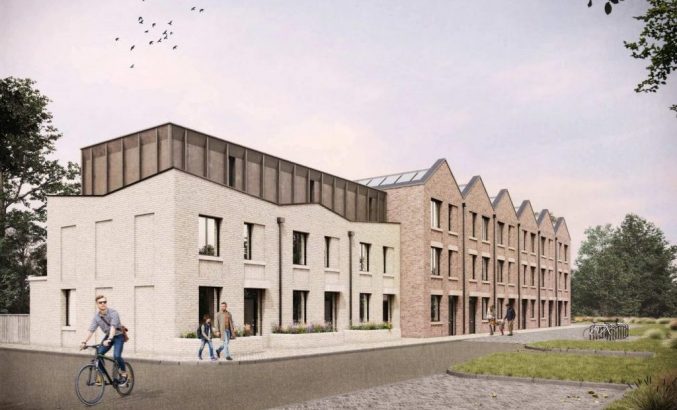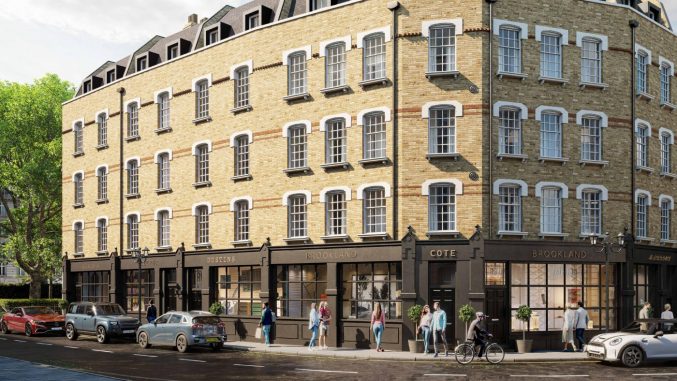The future of the office is not dead
By Paul Munford
Thomas Malthus said, “necessity is the mother of invention” and this statement is more true in 2020 than it has ever been.
The COVID 19 pandemic has torn through the world and halted the global economy with alarming pace. With an almost global lockdown over the months of April to July, most office workforces have come to a standstill, businesses were tested and forced to adapt to new working environments from home.
While the UK workforce struggled to adapt, many were furloughed, others faced the balance of working from home and the challenge of home schooling.
The mass lockdown meant that UK businesses had to assess what the implications would be for their bottom line and for how long therefore reconsidering the value of the retaining office space.
From small start-ups to tech giants, working from home became a reality and business began to rethink the role of the office space and whether we really need it.
Iconic buildings and over designed corporate spaces became synonymous with capital intensive costly line items that could be avoided.
The property industry recorded off the charts spikes in searches for country living as commuters with a dream of outer city living began a mass exodus out of the city hubs.
While this may work in theory, the office remains, and will remain, a pivotal necessity crucial to the success of a business and the people within it.
Successful business, particularly in the sector of Finance and Property has fundamentally, and will likely always remain to be; built on upon a solid foundation of human connection and personal relationships.
The forced implementation of the working from home culture during the pandemic has undoubtedly worked better than many had anticipated and should lead to an increased adaptation of more flexible work models.
The often-cited advantages are lower-to-no commute times, flexible working hours, and with those, an improved work-life balance have been proven to work, however, while it is possible for people to work remotely effectively, there is nothing that can fully substitute face-to-face interactions.
Employees, especially those in more junior positions, will miss out on training opportunities and the ability to spontaneously join meetings and learn soft career-building skills.
Relationship building and team cohesion is near impossible to re-create through a digital interface and can lead to information flow becoming disjointed or lost in translation.
This can often lead to dissatisfaction and a feeling of disconnection.
While working from home may be here to stay, the office space will also need to adapt accordingly. Forgoing desks, hot desking and creatively using office space is certainly required.
This is a necessary adaption to work smarter, not to move away from office-based working permanently. Recalibration requires thought and many offices have put necessary measures in place or are in progress to make the space more agile to deal with social distancing and health standards.
In some cases, that means shrinking individual offices so there can be more of them, but they will never be removed completely.
An office environment provides inimitable benefits with regard to productivity, creativity, motivation, corporate culture, and social interaction that will remain relevant and important for employers and employees in the long term.
Could the office ever really die? The answer is a resounding no, however the global pandemic has proved that there is much need for recalibration of existing space and how we use it.
Creating smart working environments that with a focus on flexibility, wellness and collaboration is required to satisfy the modern employees needs.
Striking the balance between the safety of working from home, the comfort of a boutique café and the collaborative nature of a modern co-working space is much needed in a post COVID 19 world.
For corporations this poses a complex challenge: how to cost-effectively provide the right kind of office space and when and where it is needed most.
Solving this problem creates a wealth of opportunity for businesses, especially in the finance and property sector, to achieve the optimum of core needs, space need and productivity needs.
The office is considered a critical place to create meaningful connections though creativity, chance encounters with colleagues and learning experiences that cannot be replicated online.
While modern technology has provided the ability to be more flexible to our approach of modern working, the office will continue to provide the pivotal centre and the business engine for optimum learning, productivity and creativity to be achieved.

Paul Munford is the CEO of Century Capital a provider of fast, flexible and reliable short-term bridging finance.











You must be logged in to post a comment.